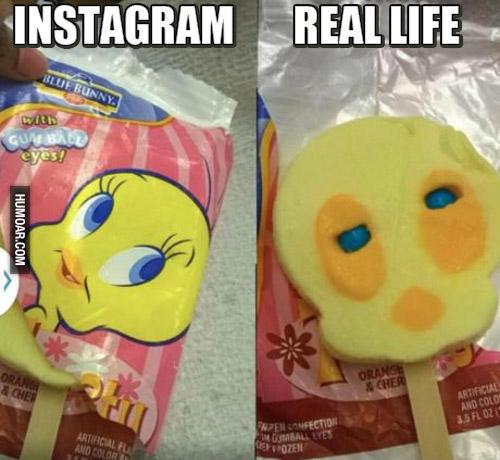
Julia Antonini
Feb. 3, 2016, 8:12 p.m.

Long gone are the days where editing your photos simply means applying an Instagram filter to them (and until recently I thought of this as being pretty advanced). The use of Photoshop has always seemed like some kind of magic reserved for professional use on models, actresses, and singers. Anyone who has ever received any media literacy education knows of the dangers that can come from comparing ourselves to these fabricated images. But, what do we do when we find ourselves in a day and age where there are thousands of photo editing apps readily available for any mobile device user? What do we do when more and more of our peers on social media are beginning to appear just as flawless as a digitally manipulated Beyoncé or Kim Kardashian?
Crash Course in Photo Editing
There are somewhere around 2185 photo editing apps available for both iPhone and Android users for little or no cost, and more are being developed each day. A quick search in your app store will reveal the endless possibilities and varying costs of some of these downloads. These photo editing apps are equipped with the magic to remove acne, stray hairs, smooth out your complexion, whiten teeth, and trim and reshape your face and body all with a few swipes of your finger. Some apps play into social stigmas and operate on the basis of giving you the “inspiration” to “achieve the perfect look”.
Perhaps the most disturbing reality of all is that millions of people are using these apps on a day to day basis. This is only skimming the surface, but hopefully paints a picture of what falsifications can be achieved almost instantly from our phones.
You May Have Removed Your Dark Circles, but You Have Stepped Into the Dark Side
As convenient as it is to have the technology readily available to quickly adjust physical “imperfections”, we really need to ask ourselves: where do we draw the line? While removing a few blemishes or under-eye circles to look more refreshed seems harmless, those practices are playing into falsified social expectations. In addition, shaving pounds off of our bodies or adjusting facial and body structures with apps further strengthens these unrealistic expectations to be seen as social norms. Given that there is research available to suggest that being exposed to altered images can lead to lowered self –esteem and anxiety, it’s worthwhile to think about the impact these images could have on mental health. We no longer have to just worry about being bombarded with images of perfect bodies and faces through media and advertising, we are getting that from our peers on social media as well. These images might make people stop and wonder why they don’t meet these unrealistic standards, possibly triggering lowered self-esteem and/or weight and shape preoccupations. When you edit pictures to the point where the version of you on social media doesn’t quite look like what you see in the mirror, you are only setting yourself up for disappointment and disconnect. Those “likes” and comments you receive on those photos are for the altered version of yourself, and ultimately that doesn’t feel so great.
So what can we do?
This calls for a new wave of media literacy…social media literacy. Just like how we advise people to think critically about what we see in popular media, it’s also important to think critically about what we see when we are browsing through our own social media feeds. It might be comforting to know that while many of our peers seem flawless in their selfies, they might be getting the help of a little digital touch up here and there. People’s first reaction when meeting you shouldn’t be that you look nothing like how you appear in your Instagram account. Rather, it should be about how awesome you are as an individual for a variety of other reasons; because we are all so much more than what we display on social media.
The Outreach and Education Team at NEDIC provides workshops, presentations, panel discussions, and webinars on many awareness and preventative topics including social media literacy. For more information about requesting a presentation, click here.
Julia Antonini is a Clinical Research Project Assistant at the Hospital for Sick Children and works in eating disorder prevention. She is also a former Outreach and Education Volunteer at NEDIC and is passionate about eating disorder treatment and prevention. Having recently graduated from The University of Toronto in psychology and human biology, she hopes to continue research at a graduate level on the topic of weight bias as well as other social determinants that contribute to the development of weight and shape preoccupation.